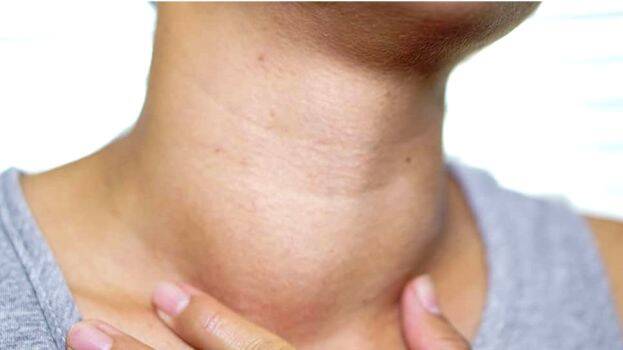
Thyroid Nodules: Symptoms, Causes, Diagnosis, & Treatment
Thyroid nodules are growths or lumps in the thyroid gland, located in the front part of the neck. These nodules can be solid or fluid-filled and vary in size. While the presence of thyroid nodules can be concerning, the majority are benign (non-cancerous). However, a small percentage of thyroid nodules may be malignant (cancerous), making evaluation and monitoring important.
Causes of Thyroid Nodules
Thyroid nodules can result from several conditions, including:
- Iodine Deficiency: Less common in areas where iodine is added to salt.
- Overgrowth of Normal Thyroid Tissue: The reason for this overgrowth is often unknown, and it may not always require treatment.
- Thyroid Cysts: Fluid-filled nodules resulting from the degeneration of thyroid adenomas.
- Thyroiditis: Inflammation of the thyroid gland can lead to nodule formation.
- Thyroid Adenomas: Benign tumors of the thyroid gland.
- Thyroid Cancer: While most thyroid nodules are benign, a small percentage are cancerous.
- Goiter: General enlargement of the thyroid gland can sometimes include the formation of nodules.
Symptoms
Many thyroid nodules do not cause symptoms and are often discovered incidentally during a physical examination or imaging studies performed for another reason. When symptoms do occur, they may include:
- Visible swelling at the base of your neck
- A palpable lump at the front of your neck
- Difficulty swallowing or breathing if the nodule is large enough to press on your esophagus or windpipe
- Thyroid gland dysfunction symptoms, such as unexplained weight loss or gain, changes in heart rate, and alterations in energy levels, depending on whether the nodule is producing thyroid hormones
Diagnosis
The evaluation of thyroid nodules typically involves:
- Medical History and Physical Examination: Assessing symptoms and performing a neck examination.
- Blood Tests: Measuring levels of thyroid hormones and thyroid-stimulating hormone (TSH) to assess thyroid function.
- Ultrasound: Provides detailed images of the thyroid gland and nodules, helping to determine if a nodule is solid or fluid-filled and if there are characteristics suggestive of malignancy.
- Fine-Needle Aspiration Biopsy (FNA): Involves extracting cells from the nodule with a thin needle for microscopic examination. This is the most reliable way to determine if a nodule is benign or malignant.
- Thyroid Scan: In some cases, a radioactive iodine scan may be performed to assess whether the nodule is hot (producing too much thyroid hormone) or cold (not producing hormones).
Treatment
Treatment options depend on the nature of the nodule:
- Benign Nodules: May not require any treatment, but regular monitoring with ultrasound to check for changes in size or appearance.
- Hyperfunctioning Thyroid Nodules: May be treated with radioactive iodine to shrink the nodule or with surgery.
- Suspicious or Malignant Nodules: Surgical removal of part or all of the thyroid gland may be recommended. If thyroid cancer is confirmed, additional treatment, such as radioactive iodine therapy, may be needed.
- Symptomatic Nodules: Even if benign, nodules causing symptoms due to their size or location may require surgical removal.
Monitoring and Follow-Up
Regular follow-up with a healthcare provider is crucial for monitoring the growth and any changes in thyroid nodules. This often includes periodic ultrasound examinations and, if necessary, repeat FNA biopsies.
Understanding thyroid nodules is key to effective management and ensuring that any potential issues are addressed promptly. For individuals with thyroid nodules, working closely with healthcare providers to monitor the condition and decide on the appropriate course of action is important.
To book online select the date and time that suits you best – alternatively, please contact us with any questions via the chat, call or email links provided.
Telephone: 020 7101 3377

